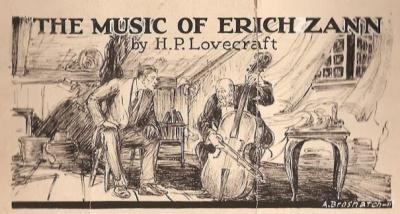
Jenny Hval’s Soft Radicality
The music of Jenny Hval engages you in ambivalent journeys. In her song «That Battle is Over», she reflects not just our inner but also our political realities. Read a sonic fiction essay.
Jenny Hval is a multi-talented Norwegian avant-garde musician and author. Although one may perceive her music as unassuming, it’s excitingly experimental. She synthesizes sounds from various styles such as pop, electronic music, noise, psychedelic, folk and classical music into a stream of musical-linguistic images. She also draws influences from art, literature and film. Her sixth album, Blood Bitch, is an artistic exploration of feminist menstrual art. Her penchant for cultural theory does not come across arrogantly, however. She sings pretentious terms like «abstract romanticism» in a charming voice combined with personal thoughts. The result is a sound that beckons the listener into a dazzling and intimate space where he or she can float away.
You Could Float Here Forever
You click on the song «That Battle is Over». The atmospheric pop music helps you drift awaywhile harmonious organ tones lay a blanket for you. High-rattling percussions rhythmically carry you into better, gentler worlds of thought on your after-work couch. You can find peace from the day, from this world and history. Now you take care of yourself. Jenny Hval’s chirping voice makes you calm. She whispers in your ears: «What is it to take care of yourself? What are we taking care of?» What kind of question is this? Is it a question that brings you closer to yourself or further away from it? She sings, up and down, storytelling. You sink into your inner life. Her voice is flickering, oscillating like the ringing of the ears, rushing like the bloodstreams in your body that comes to rest. She is softly lulling, she sings of «mothering ourselves» … you're falling asleep.
«We're at the edge of history». What did she just say? You are straightening your pillow. Everything’s okay. «What's wrong with me?» she sings in a melisma like butterfly wings. It sounds as if her voice is playing a micro melody on each of her words. Their content is heavy and that makes you hearken only hesitantly. But you cannot resist the buzzing course of her voice. The melisma and vibration prickle along the sides of your body. Her tone is lifting you up.
Jenny Hval's meaningful sentences fly on sounds as soft as clouds. «Feminism is over and socialism's over. Yeah, I say I consume what I want now». She is pulling that blanket away from you. Your body is getting lifted up and floating in the middle of the room. And here you are, now, with your naive wishes, your commercial desires, your hackneyed metaphors, and your expired ideologies. You feel tired and old already in your mid 30s. However, you feel understood, finally understood. You could float here forever. Because the fight is over for everyone. «The Edge of History: The Great Eye turns to us. We are the only thing that’s aging». We are all running out, tired, tied to the rhythm of the streaming, the nano devices and the algorithms. The biggest dilemma of our time is packed in a sound that can make you fall asleep, you think. The sweetest imitation of reality. But suddenly the sound of the organs changes into a deep and doubtful tuned noise cluster. «Sleep tight forever», she whispers in the end. The battle is over.
Biography
Links
Published on April 14, 2018
Last updated on April 11, 2024
Topic
Desires are produced personally and impersonally: About music as desiring machine and the elasticity of bodies.



